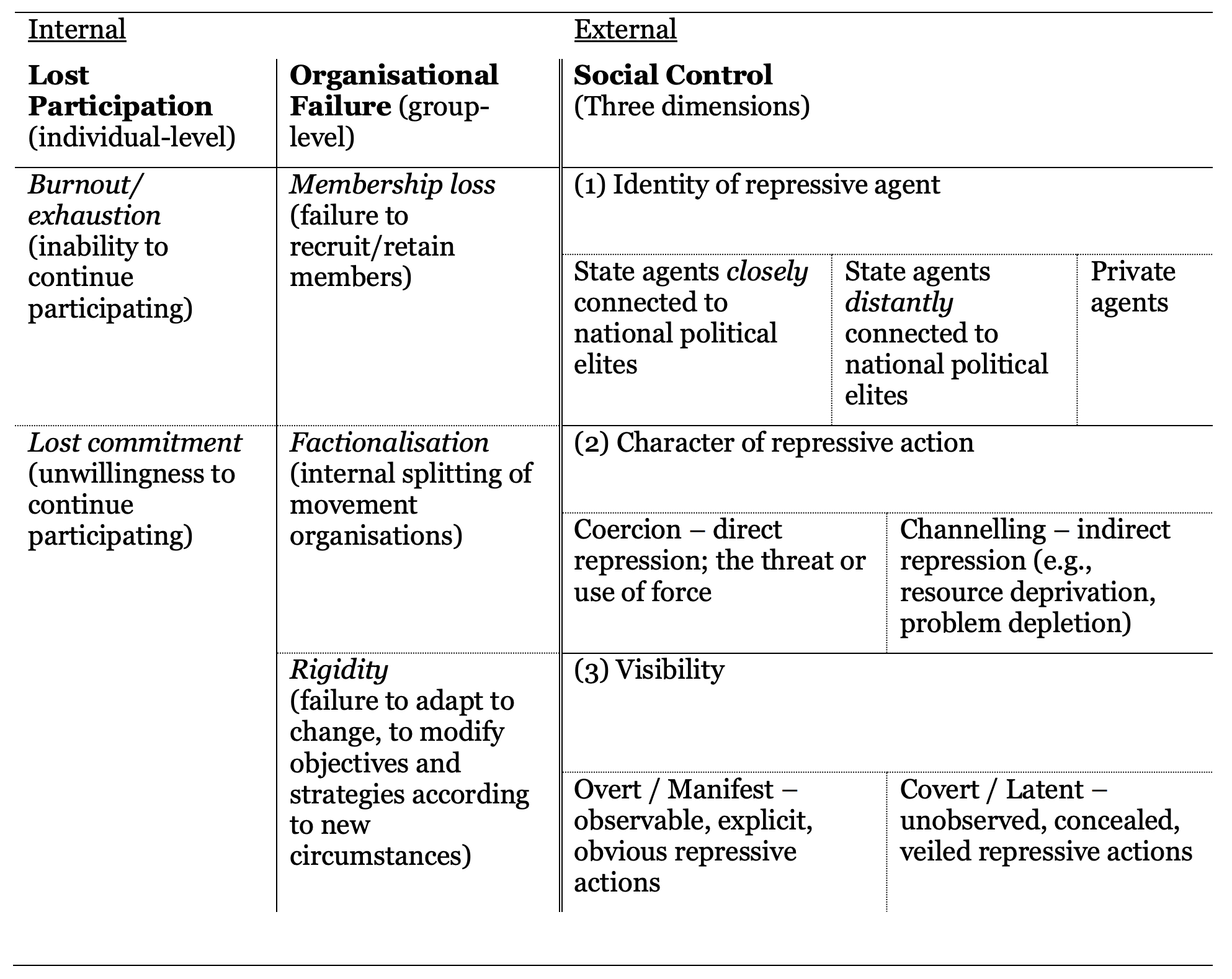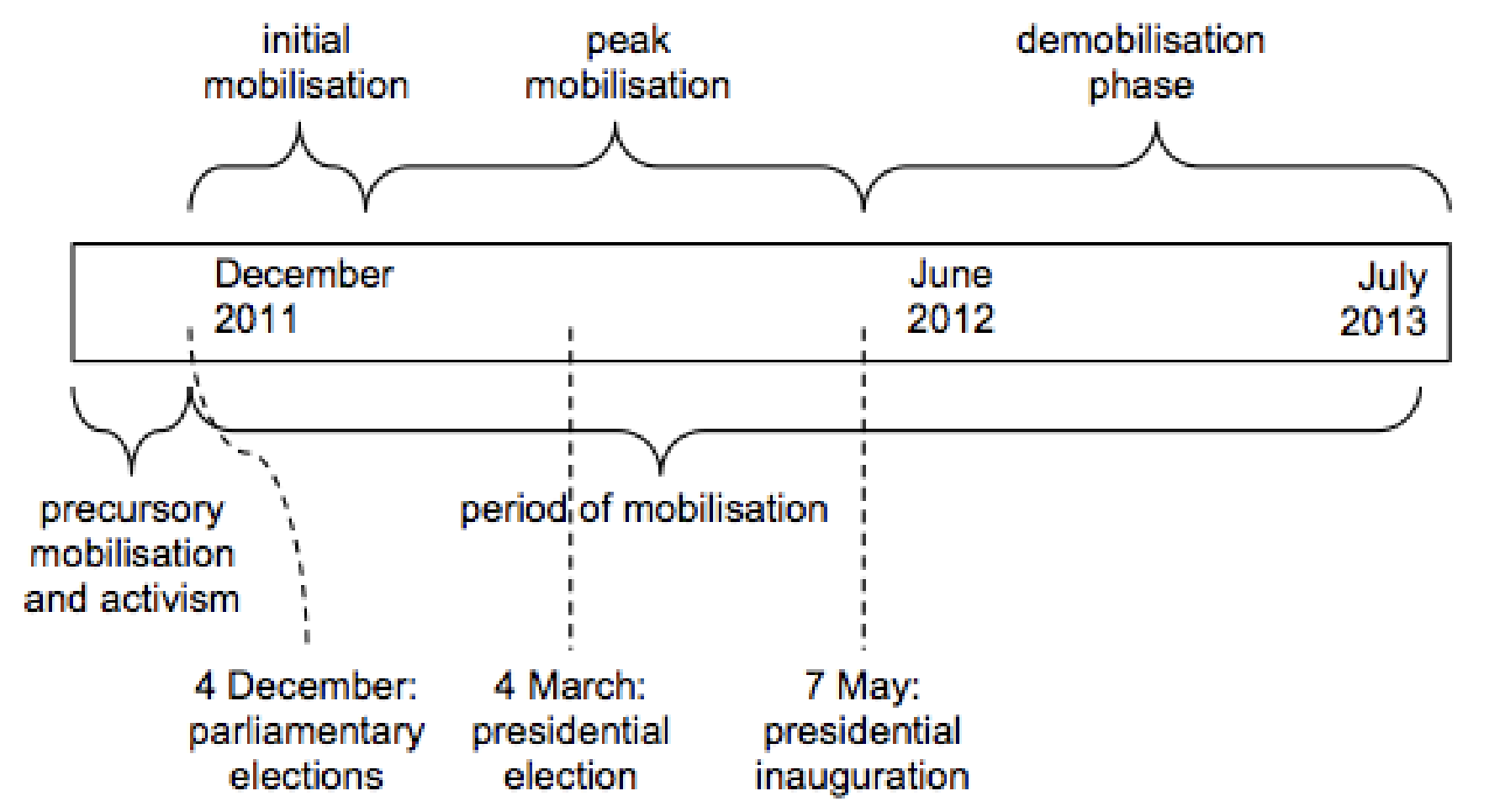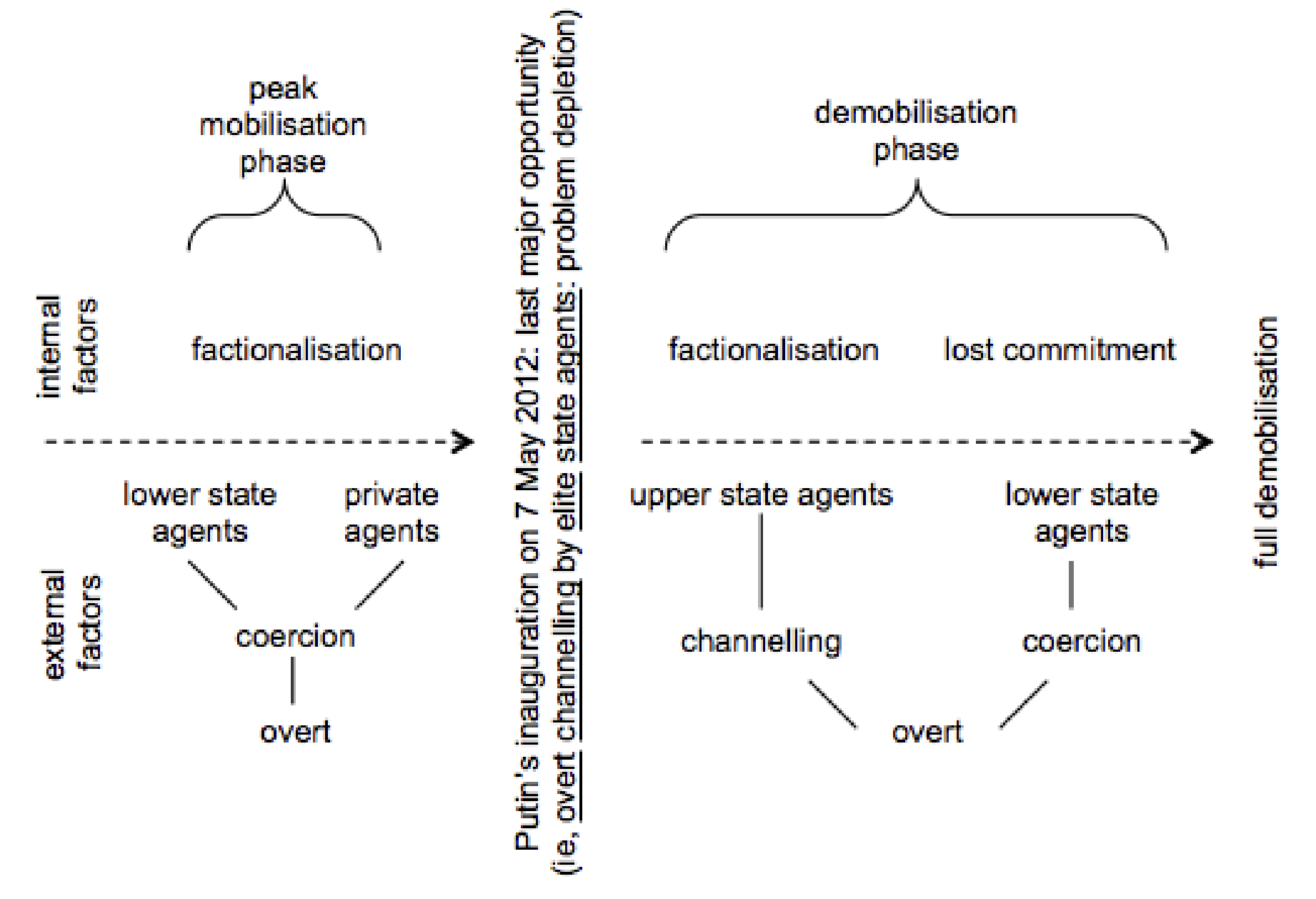Important links
Abstract
The study of social movement organisations (SMOs) has tended to converge on the initial, upward trajectory and most intense activity of SMOs, that is, mobilisation and campaigning. Comparatively little attention has focused on the downward slope: how do movements falter and fail; how do SMOs demobilise? Recent work has sought to fill this lacuna. Davenport’s (2015) theorisation is the latest, most useful addition to the topic. Yet existing theories still omit facets of demobilisation and bear the mark of over-reliance on case inference. This article addresses these persistent conceptual problems. First, it argues for a reformulation of Davenport’s theorisation of SMO demobilisation, re-aggregating demobilising factors internal to SMOs and broadening the scope of external factors to include the repressive activities of non-state agents. Next, the article asserts that the causal logic of demobilising factors is complex: the concurrence of factors is what produces demobilisation (this is ‘conjunctural causation’) and multiple combinations of factors can cause demobilisation (this is ‘equifinality’). Finally, the article demonstrates the analytical utility of the proposed conceptual framework and concomitant causal logic by briefly analysing the case of the For Fair Elections (FFE) movement organisation in Russia in 2011-2012. This case exhibits the multiplicity of internal strains and external pressures that converge to produce demobilisation. Taken together, the article’s conceptual framework and empirical example provide a guide for identifying, analysing, and characterising SMO demobilisation.
Important figures



Citation
@article{zeller2020rethinking,
title={Rethinking demobilisation: concepts, causal logic, and the case of Russia’s For Fair Elections movement},
author={Zeller, Michael C},
journal={Interface: A Journal on Social Movements},
volume={12},
number={1},
pages={527--558},
year={2020}
}